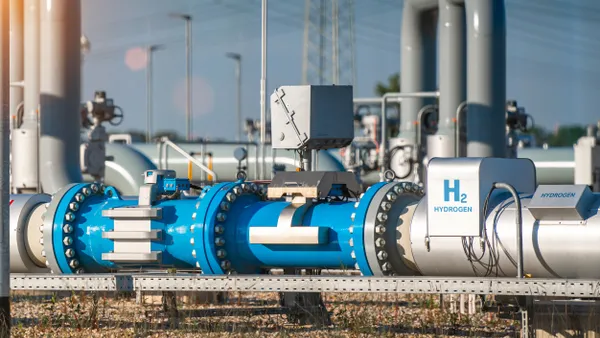Dive Brief:
- The corporate ESG solutions arm of Nasdaq, the global financial services company and stock market operator, is collaborating with sustainable finance company Crux to help its clients better take advantage of the transferable tax credits offered in the Inflation Reduction Act, Nasdaq announced last week.
- The partnership will give Nasdaq clients access to Crux’s platform of clean energy project developers and manufacturers to allow potential buyers to manage transferable clean energy tax credits and make transactions.
- The Internal Revenue Service issued final guidance on the transferability mechanism in April. Meanwhile, Crux’s mid-year insights, released in July, found the transferable tax credit market is expected to reach between $20 billion and $25 billion in transactions by the end of the year.
Dive Insight:
The Inflation Reduction Act included more than $369 billion in clean energy tax incentives, and the included transferability mechanism allows clean energy manufacturers to trade earned tax credits with companies for cash. Nasdaq said in the announcement that the mechanism allows companies across various industries and sizes to “support the energy transition while generating a positive return on investment.”
Nasdaq said it believes combining their ESG advisory team’s strategic insights with the market data, platform, network and expertise of Crux will allow its clients to accelerate their sustainability goals.
“We’re working together with Crux because they operate the industry’s central platform, which means we think that they are poised to play an outsized role in making the market for transferable tax credits more liquid, transparent, and efficient,” Nasdaq said in a blog post.
The IRS’s final guidance issued in April followed initial guidance in June 2023. Cruz estimated that the market’s total transfer activity was around $9 billion for 2023, according to its mid-year market report. That same report tallied over $6.8 billion in tax credit transactions in the first half of 2024 and projected that overall volume of tax credit transactions was between $9 billion and $11 billion in that time span.
Crux also noted that companies, particularly those with more certain future tax liabilities, were already looking at 2025 tax credits purchases. Some 25% of the deals reported in the first half of 2024 included a full or partial purchase of future tax credits, according to the report.
“Buyers, particularly those with relatively high degree of certainty regarding their 2025 tax liabilities, could be well-served by looking seriously at 2025 tax credit supply,” the report said. “Doing so now ensures that they can engage with the widest range of sellers and obtain advantageous pricing.”
In May, Crux facilitated a tax credit transaction between Schneider Electric and solar photovoltaic module manufacturer Silfab Solar, where Schneider purchased manufacturing tax credits from the solar manufacturer and the purchase gave Silfab funding to expand its North American operations.
















